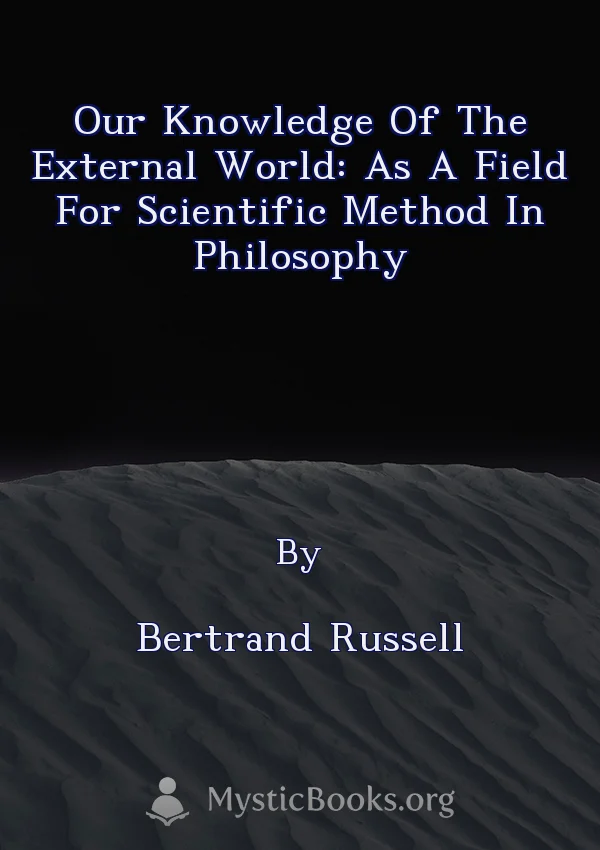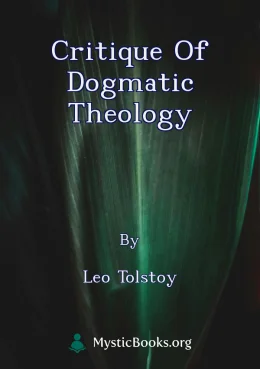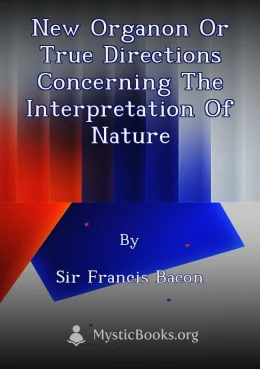
Our Knowledge of the External World: As a Field for Scientific Method in Philosophy
'Our Knowledge of the External World: As a Field for Scientific Method in Philosophy' Summary
In 'Our Knowledge of the External World,' Bertrand Russell undertakes a philosophical investigation into the nature of our knowledge about the external world. He argues that our knowledge of the external world is indirect and mediated through our senses. Russell examines the relationship between our sensory experiences and the scientific concepts that we use to describe the world, such as space, time, and matter. He argues that these concepts are not derived from direct experience but are instead the result of logical analysis and inference. Russell's analysis provides a foundation for understanding the limits of our knowledge about the external world and the role of reason in shaping our understanding of reality.Book Details
Language
EnglishOriginal Language
Published In
Authors

Bertrand Russell
England
Bertrand Arthur William Russell, 3rd Earl Russell was a British polymath, philosopher, logician, mathematician, historian, writer, social critic, political activist, and Nobel laureate. Throughout his...
Books by Bertrand RussellDownload eBooks
Listen/Download Audiobook
- Select Speed
Related books

Critique of Dogmatic Theology by Leo Tolstoy
Leo Tolstoy's *Critique of Dogmatic Theology* is a profound examination of the tenets of Orthodox Christianity, rooted in his personal spiritual journ...

Notes from the Underground by Fyodor Dostoyevsky
One of the earliest polished examples of existential literature, Notes from the Underground follows the life of a recluse and depicts his antagonistic...

Charmides by Plato (Πλάτων)
Charmides is a Socratic dialogue written by Plato that explores the nature of temperance, a virtue highly valued in ancient Greek society. The dialogu...

Second Apology of Justin Martyr by Saint Justin Martyr
The Second Apology of Justin Martyr is a powerful and eloquent defense of the Christian faith written in the mid-second century AD. Justin Martyr, a p...

Rana Viajera by Julio Camba
En 'La Rana Viajera', Julio Camba, a través de la metáfora de una rana que regresa a España después de años de viaje, reflexiona sobre los cambios que...

Liber Amoris by William Hazlitt
Liber Amoris is a deeply personal and unflinching account of William Hazlitt's obsessive infatuation with a young woman. The work goes beyond a typica...

New Organon Or True Directions Concerning The Interpretation of Nature by Sir Francis Bacon
The Novum Organum, written by Sir Francis Bacon and published in 1620, is a philosophical work that presents a new system of logic and methodology for...

Pensées by Blaise Pascal
Pascal's Pensées is widely considered to be a masterpiece, and a landmark in French prose. When commenting on one particular section (Thought #72), Sa...

Letters on Different Subjects in Natural Philosophy, Volume 1 (Letters to a German Princess) by Leonhard Euler
This book is a collection of letters written by Leonhard Euler to a German princess on various topics in natural philosophy, including physics, astron...

Human, All Too Human: A Book For Free Spirits, Part I by Friedrich Nietzsche
Human, All Too Human is a collection of aphorisms and essays by Friedrich Nietzsche, exploring the complexities of human nature, morality, and the nat...
Reviews for Our Knowledge of the External World: As a Field for Scientific Method in Philosophy
No reviews posted or approved, yet...